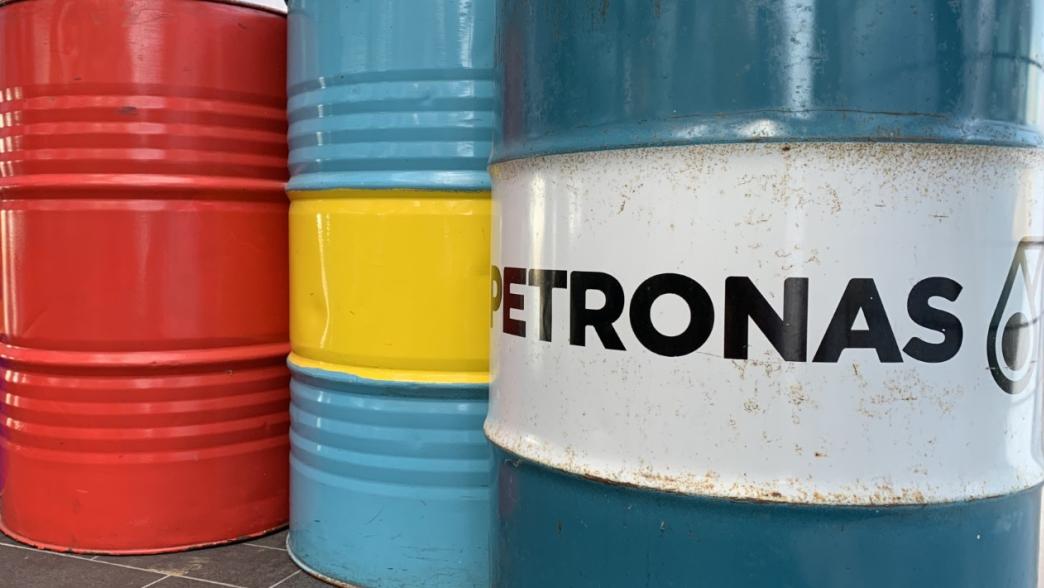
Raw or Refined: Does Commodity Processing Help Resource-Dependent Countries to Diversify?
Developing countries dependent on the extraction of oil, gas, and minerals for government revenues, foreign exchange and economic activity face a critical development challenge. They suffer more from the economic volatility that comes with commodity price fluctuations and are also under pressure to diversify their economies before reserves run out.
Last year’s crash in oil prices due to the coronavirus pandemic and the accelerating transition away from fossil fuels both highlight the importance and urgency of this issue. For example, Nigeria experienced severe shortages of foreign exchange as oil prices crashed in 2020, making it challenging for many businesses to continue operations. Recent NRGI research shows that oil-dependent countries like Nigeria could suffer a larger, longer hit if the world meets the climate targets of the Paris agreement, with $400 billion of planned investments by national oil companies failing to break even.
For these and other reasons, supporting countries to reduce resource dependency and manage its consequences is a key part of NRGI’s overall strategy and 2021 agenda.
How do forward linkages affect resource dependency?
First, here is a quick primer on some of the key concepts around linkages and resource dependency.
- Resource dependency is a situation in which a country’s key economic indicators (such as GDP, government revenues, or foreign exchange earnings) rely on the production or export of natural resources.
- Volatility is the tendency for key economic variables to change rapidly – for example, the oil price has been extremely volatile since the start of the coronavirus pandemic.
- Linkages are relationships between different sectors of the economy, where operations in one sector help to grow another.
- For extractive industries, one “forward linkage” involves the downstream processing of a commodity to make it either more valuable as an export or more useful to the domestic economy, e.g., refining oil or extracting metals from raw ore.
Forward linkages can impact a country’s level of resource dependence. In several NRGI priority countries, governments and citizens see such forward linkages as a pathway to a more diversified and less resource-dependent economy.
Forward linkages in oil, gas and mining can lead a country toward economic diversification through:
- knowledge spillovers to other sectors (i.e., when knowledge acquired in one sector of the economy “spills over” to other sectors, raising their productivity)
- potential increases in private investment in infrastructure and other, non-extractive sectors
- provision of cheap inputs (i.e., commodities or resulting products like fuel) that make other sectors more competitive
- government revenues that authorities can reinvest in the development of other industries
But some analysts worry that doubling down on extractives may instead worsen dependency, leading to an even greater share of a country’s economic activity being tied to the sector.
Governments in resource-rich countries are increasingly seeking to establish or expand forward linkages to their extractive sectors. For example, a state company in Ghana is aiming to harness bauxite reserves and grow an integrated aluminum industry. Bolivia’s government is trying to use domestic gas supplies to produce petrochemicals. Mongolia and Uganda are both planning oil refineries, while Mexico’s government seeks to expand its refining capacity.
With many countries aiming to both reduce resource dependency and promote forward linkages, it is important to understand how these interact with one another in practice. As a starting point, NRGI commissioned a review of the existing literature in extractive forward linkages’ impacts on resource dependence.
This review found no consensus on whether forward linkages help to reduce or increase resource dependence. Rather, it revealed two general scenarios: in some cases linkages reduced extractive dependency, and in others where they appeared to have increased it.
Malaysia and Nigeria have both developed forward linkages from the petroleum sector (e.g., refining, petrochemicals), but have achieved very different results. In Malaysia, linkages have helped the country diversify, supporting the automotive, electronics and synthetic rubber industries in addition to a highly competitive plastics industry. By contrast, Nigeria’s oil refineries, which have operated at reduced capacity for decades, have struggled to satisfy domestic demand, 70-80 percent of which is met through imports. Moreover, Nigeria’s refineries also make heavy losses, which eat up public funds that the government could use to develop other sectors of the economy. Nigeria’s dependence on oil for export earnings worsened between 1965 (when its first refinery was built and oil accounted for 32 percent of exports) and 2018 (by which time oil had risen to 94 percent of exports).
So while forward linkages can provide a springboard to diversification (and thus reduce resource dependency), they can also at times worsen dependency. By drawing even more, often scarce, resources—such as skilled workers, power, private capital and public funds—into the sector, they can hinder rather than help the growth of other sectors, meaning that the country relies even more on extractives.
Another risk: domestic consumption of oil and natural gas for power locks a country into using fossil fuels even when switching to renewable sources would be environmentally and/or economically advantageous; this risk will become even more acute as the energy transition gathers speed and the cost of renewables falls further relative to fossil fuels.
Downstream viability and use of domestic inputs are critical for diversification
The impact of forward linkages on dependency is therefore highly context specific. Achieving a positive outcome depends on the presence of three factors:
Viability of downstream processing activities
Inefficient downstream activities—like Nigeria’s refineries—are less likely to help countries diversify. They often fail to deliver low-cost inputs to the wider economy. In addition, where downstream activities are inefficient, governments often use fiscal incentives to encourage in-country processing to take place anyway, which impacts public finances and can reduce countries’ ability to support diversification in other sectors. (N.B., government sometimes offer fiscal incentives even when such activities are efficient). Similarly, if extractives companies are forced to process commodities in-country even though processing is uncompetitive, this will reduce their profits and, consequently, the government’s tax revenues from the sector.
There are several key factors that contribute to efficiency in downstream processing, though these can differ significantly between commodities. For example, large annual production of the relevant upstream resource allows downstream activities to benefit from economies of scale, as in Saudi Arabia. Sizeable oil reserves and level of daily production have allowed Saudi Arabia to be a competitive refiner. By contrast, NRGI’s analysis of proposed gold smelting in the Kyrgyz Republic indicated that production there is too small for the proposed smelter to be commercially viable. Policies also critically matter; these include efforts to upgrade infrastructure, co-ordinate investments, set productivity targets and develop skills among workers.
Countries with large shares of a resource’s global production are also more able to incentivize (or even force) investors to establish downstream facilities domestically as there may be few alternatives for acquiring the refined resource. When Indonesia banned the export of raw nickel, processing activities in Indonesia grew substantially; now the country may be able to capture more value down the electric vehicle battery supply chain. Part of its success with nickel processing is because China, the main importer of nickel, found it hard to switch to other nickel exporters as Chinese smelters has been customized to Indonesia’s high-grade nickel ore. In order to maintain supply, investors constructed nine smelters in Indonesia by mid-2017. However, when Indonesia pursued a similar policy in its bauxite sector, this was unsuccessful, as the country had much lower market share and bauxite importers (and investors) were able to easily source bauxite from other suppliers.
Further, where downstream industries are competitive, they may be able to survive even when the country’s own reserves run out (using imported raw commodities), which can cushion the blow of reserve depletion. For example, time will tell whether Botswana’s diamond cutting and polishing sector will remain competitive once its reserves run out.
Extent to which forward linkages use inputs from other sectors
Downstream activities can increase demand for inputs from other sectors, which in turn helps those sectors grow. But not all forward linkages bring this benefit—some rely on imported inputs and have little impact on the rest of the economy. The type of forward linkage a country pursues therefore has critical implications for its diversification prospects. Policy can be decisive here as well. A plan to use forward linkages to diversify requires a government to develop a broader industrial strategy that considers, for example, the optimal sequencing of the processing activity and the sectors to which it will link. Malaysia has successfully accomplished this with its oil sector.
Depth of downstream processing
Different types of forward linkages also have different effects on price volatility; this is one of the most problematic impacts of resource dependency. Many processed extractive products have more stable prices than the raw commodities from which they are derived, which helps to reduce volatility. This works best where forward linkages are deeper – the more value that is added in downstream activities, the less volatile prices for the resulting products tend to be (and the less volatility this introduces to the economy).
If conditions and policies are right, forward linkages can help countries to diversify or to alleviate the effects of resource dependence. If they are not, countries can become even more dependent on oil, gas or minerals. This relationship is specific to the commodity, the linkage and the national and regional contexts and politics. For these reasons we at NRGI will support assessments of the plans of governments in our focus countries, and build and share expertise in this critical area of resource governance.
This post is based on a literature review by Amir Lebdioui and Pavel Bilek.



